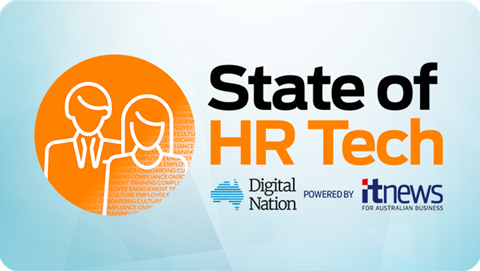Less than one-fifth of employees believe their organisation has the necessary knowledge, mindset and behaviours required for a strong culture of sustainability, according to a recent Gartner survey.

While there is a lack of a strong sustainability culture, the survey highlighted that two-thirds of employees see sustainability issues as "highly important".
The survey also found 31 percent said their organisations provided resources to support environmental, social and governance (ESG) goals. Engagement could see a boost of 43 percent if such initiatives were introduced into the workplace.
Kristin Moyer, distinguished VP analyst at Gartner, told Digital Nation the results showing only 16 percent of employees believe their organisation has the foundations needed for a strong culture of sustainability are “right”.
“This is not a perception problem, that employees 'just don’t get it.' It’s reality. This is also not a sign that organisations are doing a poor job with sustainability,” Moyer said.
“Many organisations have only recently set sustainability goals, and it takes a while for change to actually happen.”
Huge opportunity
Aaron McEwan, vice president and advisory in the Gartner HR practice said during a Gartner ReimagineHR Conference in Sydney that HR leaders have a “huge opportunity to build a stronger culture of sustainability and realise these engagement benefits.”
Gartner's 3Q23 Global Talent Monitor (GTM) data listed that only 9.2 percent of Australian employees trust their places of work to take action or have made a statement on environmental, political, social or humanitarian issues.
McEwan said, "To build a culture of sustainability and reap the benefits of engaging with the workforce, HR leaders must ensure all employees have a clear understanding of the organisation’s sustainability goals, as well as how they can contribute.
"Involving employees in co-defining what sustainability means for the organisation is critical, as well as in prioritising initiatives that meet corporate goals."
The survey found 39 percent of employees agree that their manager cares about their professional goals related to ESG issues.
McEwan said managers are creating a “bottleneck” which could lead to limiting employees and straining sustainability culture.
“The good news is that managers already have the skills and experience to support and engage employees, they just need to apply it to the company’s sustainability goals and initiatives,” he said.
McEwan added the more people employees connect to, the greater the likelihood they will find opportunities to contribute meaningfully and increase their connection to the sustainability culture.
“It also decreases the pressure on managers to be the single point of contact, and potential bottleneck, for employees to engage with,” he said.
“When employees can see, understand and contribute to their organisation’s sustainability objectives, HR leaders and managers reap.”
Energy ignorance
Moyer explained sustainability is everyone’s job, including HR leaders.
"HR leaders should help create a culture of sustainability by engaging employees, leveraging technology platforms to boost employee engagement," she said.
The first step is to educate employees, Moyer said.
"Most employees are not aware of their digital impact on the organisation,” she said.
“They are 'energy ignorant' when it comes to device, software, data and other technology usage. HR leaders should work with IT to communicate the importance of “digital sobriety”.
Moyer said, “Digital sobriety is helping employees be more mindful about technology-related energy usage.”
The second step is to create a new kind of employee experience, according to Moyer.
“Instead of just “digital employee experience” (DEX), focus on the “sustainable digital employee experience” (sDEX),” she said.
“For example, some organisations are using mobile apps to help employees identify ways to reduce their technology-related energy use.
“Other organisations are leveraging enterprise applications to engage employees with reminders (like “shut your laptop down at the end of the day”) or gamification through trivia questions of the week.”
Moyer said the fourth step is to help operationalise sustainability into the process level, which is “the biggest barrier to creating a culture of sustainability.
“Operationalising sustainability does not require technology per se, but rather focuses on identifying those business processes that can have the biggest impact on key sustainability priorities (called material issues)," she said.
“For example, imagine an organisation that has a goal to achieve net zero emissions from operations by 2030. This organisation may have a target to reduce business travel emissions. The relevant business processes are 'travel policy' and 'booking process'.”
Moyer said HR leaders can “help shift behaviour by working with finance and operations to include thresholds in travel policies” plus “embed decision criteria in the booking process, like cost and carbon for each flight, rather than just cost.”
“Sustainability provides HR leaders with an opportunity to engage employees more deeply.
“This will help employees see and believe that sustainability is important to the organisation. It will help organisations achieve their sustainability goals. And it will help drive financial benefits, like reduced costs through reduced energy usage,” Moyer ended.


_(28).jpg&h=140&w=231&c=1&s=0)
_(23).jpg&h=140&w=231&c=1&s=0)
_(22).jpg&h=140&w=231&c=1&s=0)
_(20).jpg&h=140&w=231&c=1&s=0)



_(26).jpg&w=100&c=1&s=0)

 iTnews Executive Retreat - Security Leaders Edition
iTnews Executive Retreat - Security Leaders Edition











_(1).jpg&h=140&w=231&c=1&s=0)



